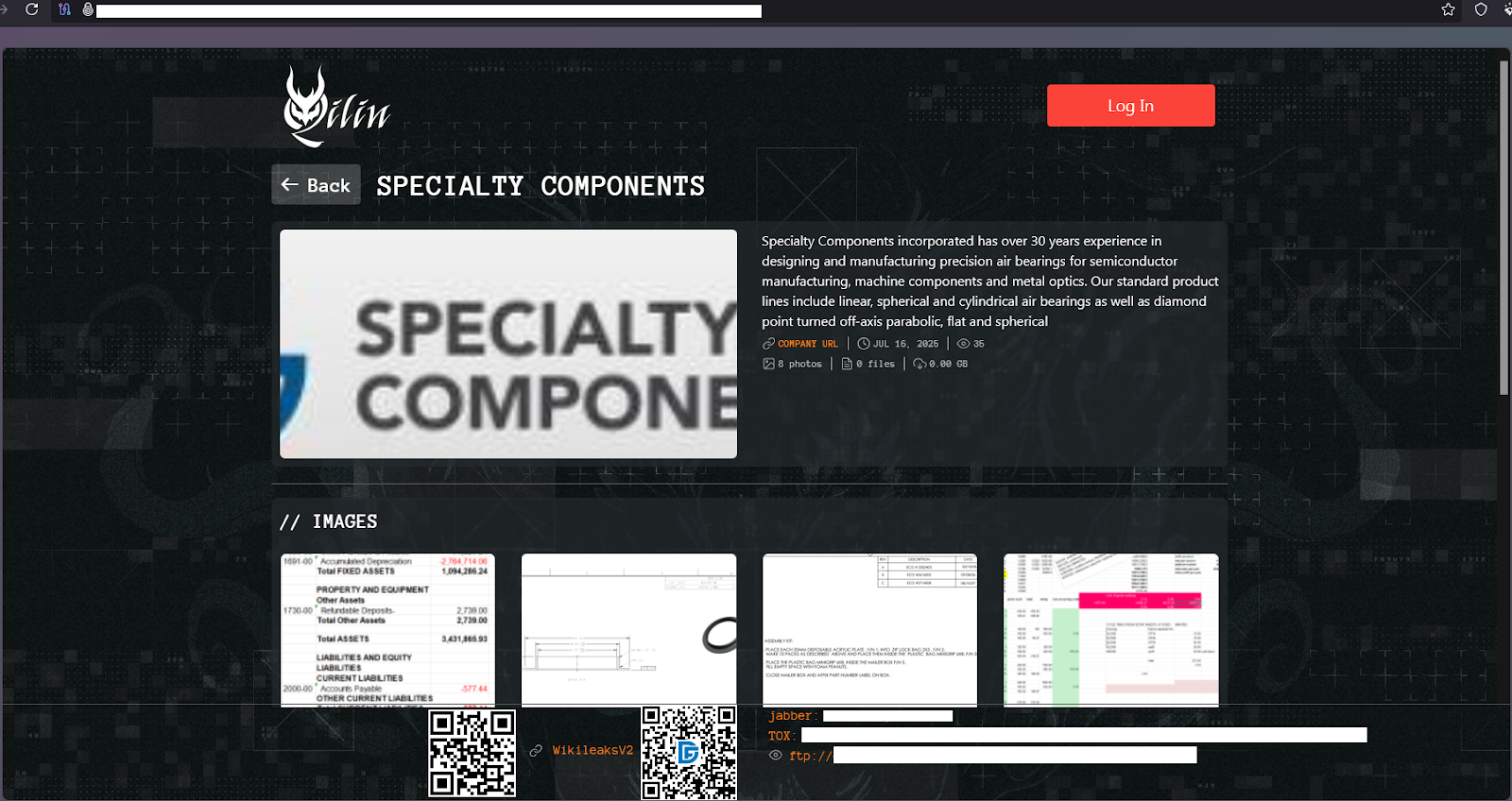Specialty Components Inc. Fall Prey to Qilin

Another victim has been claimed, according to the double-extortion group Qilin, which published eight images and a brief description on its Tor site showcasing its latest target: Specialty Components Inc.
We reviewed the images, which appear to show internal file trees and customer account directories, including shipment and billing details. This proves an intrusion took place. However, if there was an additional motive involved beyond proving that their internal systems were compromised, it is difficult to ascertain.

The screenshots appear hastily taken and do not appear to contain sufficient personally identifiable information (PII) to enable identity-based scams. However, a handful of business-associated email addresses are visible, along with customer names, shipping account numbers, and internal invoice references, information that could potentially aid in spear-phishing or social engineering attempts.
Specialty Components Inc., a company based in Wallingford, Connecticut, has quietly engineered the backbone of high-performance motion systems across aerospace, semiconductor, and research sectors for more than three decades.
They specialize in the design and manufacture of advanced air bearings and metal optics components. One of the leaked images appears to show a component drawing associated with Specialty Components Inc.’s precision bearing hardware.
How Hackers Abuse Financial Data
In my early 20s, I was hired to obtain the email list of a competitor who had created a variation of an existing patent to corner a specific market and siphon customers. The fact that he modified a patent idea to monopolize an exclusive niche struck me as particularly underhanded. So, when I acquired that email list and handed it to his sole competitor, I didn’t think much of it; I saw it as a way to deflate his operation.
It worked. That is the damage I caused to an underhanded competitor, just from stealing a list of email addresses associated with his customers. Flash forward to the present, email addresses alone are prime attack vectors for perpetrating a wide range of fraud.
Most ransomware and data-extortion groups have one goal in mind, and usually, just one trick up their sleeves: get money fast. As a result, the time spent targeting a single company is often repurposed to hit multiple organizations, rather than investing in sophisticated, long-term campaigns to extract money through other means.
This is a good thing.
It’s Time for Companies to Wake Up
When cybercrime groups, whose identities revolve around fast money, begin to evolve beyond weak and beggarly tactics, shifting from low-hanging fruit to more thought-provoking attack vectors like corporate espionage, companies will feel the pain, even if they refuse to pay a ransom.
This goes even further.
Financial attacks become the ultimate leverage. If a company is publicly traded, its internal financial data, if compromised, can reveal clues about upcoming contracts, acquisitions, or instability. Bad actors can exploit this information for stock or investment manipulation through insider trading.
Tactics like these do occur, but they won’t show up on any Tor site, or the ploy is up.
I could go on, but it's not my intention to provide blueprints for cybercrime groups to adopt. In the end, the issue of causality isn't that threat actors exist, but rather that companies fail to prepare themselves to perform audit-level security, identifying weak endpoints and ensuring their information is properly insulated from public-facing threats.